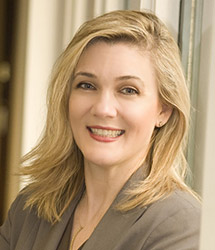Wave Staff Report
LOS ANGELES — Three years after the start of the coronavirus pandemic, many Southland communities still are in the process of recovery and may need increased support to prepare for the next destabilizing event.
That’s the gist of a new report from the United Way of Greater Los Angeles that was developed through a series of surveys, one-on-one and collective conversations with community and corporate partners, leaders and community residents,
The Community Conversations Report is providing a new organizational focus the United Way will use to address the specific disparities experienced by the residents of the diverse neighborhoods across the county during the pandemic. More than a hundred voices from community members in South Los Angeles, Westlake, Pico-Union and San Fernando Valley were part of the conversations.
“The pandemic state of emergency ends, but our commitment to supporting families and individuals experiencing the daily crisis of poverty must grow, ” said Elise Buik, CEO of the United Way of Greater Los Angeles. “The experience with COVID-19 showed us that together we can help people stay in their homes and increase their stability.
“Our Community Conversations Report makes clear what our most vulnerable are asking for, and shows how we can be more prepared the next time we have to face a major crisis so that we won’t ever again witness the horrific disproportionate effects the pandemic had on marginalized communities of color.”
The Community Conversations Report makes the following recommendations, and commits the United Way to working on these issues as it heads into its next 100 years:
• A stable home: People from every income level and sector believe the housing crisis is this region’s most pressing issue.
• Support to weather crises: People do not have what they need to navigate crises, including access to the right information and resources.
• New tools to build wealth and prosperity: Addressing health disparities, an inability to generate wealth, a cycle of low-paying jobs, and interpersonal racism for a disproportionate number people of color by investing in partners embedded in those communities.
• And prioritizing housing: Support new housing ownership models and structures that help residents build wealth.
“The cross section of Los Angeles County residents that came together for these conversations makes an invaluable contribution to what we’ve already learned about the needs of our region and its residents in this tumultuous time,” said report author Jeimee Estrada, co-founder of Estrada Darley Miller Group. “Their voices raise known issues: residents are rent burdened, income inequality and systemic racism uniquely disadvantage [minority] communities’ daily lives and they stack the deck against their chances of weathering any type of crisis.
“What is unique about this report is uplifting the solutions that a set of diverse Angelenos from many walks of life believe need to happen to address what we know is happening.”
Partners and community members are calling on the United Way to prioritize housing, facilitate basic resources people need in their daily lives and collaborate with neighborhoods to attract more investments.
“During the pandemic, Inclusive Action for the City was proud to work with United Way to deliver resources to people who might have been overlooked because of the work they do or their immigration status,” said Rudy Espinoza, executive director of Inclusive Action for the City. “Now it’s time for us to build community power and community wealth to shore up our resilience for whatever comes next.”
As the United Way of Greater Los Angeles closes its centennial anniversary this summer, the organization is fully engaged in policy work, and continues catalyzing coalitions, all while delivering on its intended mission to ensure every person in Los Angeles have equal access to housing, education and the opportunity to build generational wealth, Buik said.
“This pandemic really demonstrated that there was already a need and it just has been exacerbated,” said Azucena Hernandez, director of community transformation for East L.A.-based nonprofit Promesa Boyle Heights, a United Way grantee that provided direct relief during COVID-19. “So mental health within our LAUSD schools is a high priority as well as supporting our highest needs students for example, English learning students, and ensuring that all of the intersectional pieces that affect the student from immigration status, homelessness, among other issues, are addressed.”
The United Way of Greater Los Angeles’ plan to support grantees to build community wealth includes engaging in conversations with local organizations to set up priorities of the specific needs of the neighborhoods they serve, especially with minority or women-led community organizations and individuals, Buik said. It also will boost funding for organizations to take a leadership role in coalition and policy work, allowing systemic change for communities to be led by communities.
“Helping people who are in crisis, we actually see it on a weekly basis for our food distribution and every school that we attend,” said Elizabeth Padilla, chief operating officer for community organization It’s Bigger than Us, another grantee. “For us, we want to make sure that we’re providing folks with different solutions in their crisis depending on where they’re at.
“Helping people take care of every essential aspect in their lives is what sets them up for a successful life,” she added.
LIFTOUT
“The experience with COVID-19 showed us that together we can help people stay in their homes and increase their stability.”
— Elise Buik, CEO of United Way of Greater Los Angeles









